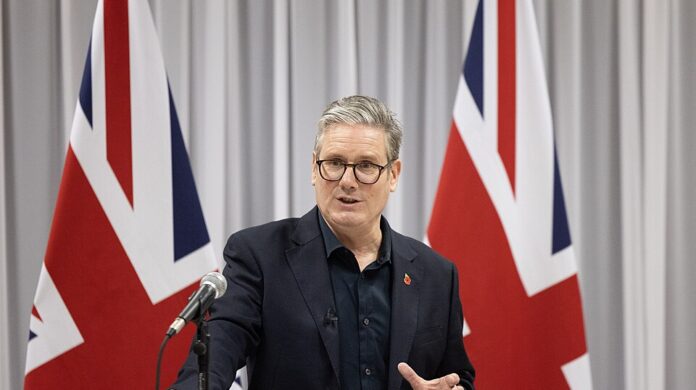More than a third of Parliament urges Starmer to recognise the Palestinian state as the Gaza crisis deepens
Sir Keir Starmer is facing mounting political pressure after 220 MPs from across the political spectrum signed a letter urging the UK to formally recognise a Palestinian state. The dramatic intervention comes as the humanitarian crisis in Gaza worsens, and international allies like France, Spain, and Ireland pledge recognition of Palestine in hopes of securing peace.
Over half of the signatories are Labour MPs, including high-profile figures like former minister Liam Byrne and committee chair Ruth Cadbury. Senior members of other parties also joined the call, such as Lib Dem leader Sir Ed Davey, former Tory minister Kit Malthouse, and Parliament’s longest-serving MP, Sir Edward Leigh. Signatories span nine parties, including the SNP, Greens, Plaid Cymru, SDLP, and independents.
The letter, spearheaded by Labour MP Sarah Champion, insists UK recognition of Palestine would send a “powerful symbolic message” of support and uphold Britain’s long-standing cross-party consensus for a two-state solution.
It declares: “British recognition of Palestine would be particularly powerful given our history in the region. Recognition would show the Palestinian people they are not alone and that peace is still possible.”
Champion, who chairs the International Development Committee, warned that time was running out for hope. “This remains the only viable proposal to secure lasting peace,” she said.
The letter lands just as France announced plans to recognise Palestinian statehood within months, putting Starmer under fresh diplomatic pressure. Yet Downing Street has been cautious. In a recent emergency call with French President Emmanuel Macron and German opposition leader Friedrich Merz, Starmer reaffirmed that recognition must be part of a broader roadmap towards a two-state outcome.
“I am unequivocal,” Starmer said. “Recognition must be one of the steps. But it must be part of a wider plan that leads to lasting peace and security for Palestinians and Israelis.”
On the humanitarian front, Starmer said the UK would “pull every lever” to get aid into Gaza. He pledged to help air-drop emergency supplies, including medical evacuation for children, and revealed that British aid is already being coordinated with Jordan.
Still, the UK, France, and Germany released a joint statement stopping short of recognising statehood. Instead, they demanded Israel lift restrictions on aid, calling the Gaza situation a “humanitarian catastrophe that must end now.”
The statement sharply criticised Israel’s actions, urging the disarmament of Hamas and declaring it “must have no role in Gaza’s future.” It stopped short, however, of matching France’s pledge on Palestinian statehood.
Meanwhile, tensions continue to rise over reports of over 1,000 Palestinians killed while trying to access food aid in the past two months. The UN human rights office attributed the deaths to Israeli military operations. Israel claims its forces only fired warning shots and denies deliberately targeting civilians.
In response to global criticism, Israel’s foreign ministry dismissed recent joint condemnations by 28 countries—including the UK—as “disconnected from reality” and said they sent “the wrong message to Hamas.”
In Parliament, the momentum for recognition has surged. 60 MPs wrote to Foreign Secretary David Lammy last month, and a previous non-binding 2014 motion calling for recognition passed overwhelmingly in the Commons.
Globally, 139 countries already recognise Palestine. Yet major Western nations, including the US and many EU members, have held back, preferring to tie recognition to a broader peace agreement.
Still, Spain, Ireland and Norway have broken ranks, formally recognising Palestine last year to increase diplomatic pressure.
The letter’s timing is strategic—and its message is clear. The UK must move beyond words and deliver meaningful political recognition, signatories say. But with war still raging, aid being choked, and diplomatic tensions mounting, the cost of delay could be irreparable.
